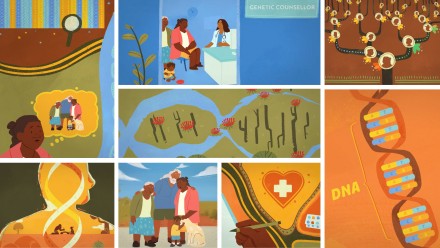World-leading community consultation

The enthusiasm with which communities are participating in NCIG Research, when other research initiatives struggle to achieve effective participation, is powerful evidence that the NCIG approach is working.
Doing things the right way
By ensuring that the interests of Indigenous communities are paramount, the NCIG Board provides an assurance to participants and their communities that in participating in NCIG they will be treated in the right way.
Our genome research is conducted in line with customary laws and practices, and community interests. Indigenous Australians play the central role in decisions about data collection, stewardship, access and use. They ensure that the conduct of research and dissemination of findings become part of cultural narratives that have meaning in the lives of Indigenous Australians.
Indigenous communities have seen little benefit from the extensive research they have been subjected to over the years. The interests of researchers have been prioritised over those of communities; expectations have been overstated; assurances and commitments have not been fulfilled; and communities have not been informed of the outcomes of research they have participated in.
A legacy of this history of poor research practice is deep cynicism, even hostility towards health and other researchers, leading to disengagement.
The NCIG approach to community consultation is world-leading.
A culture of respect. Participants in control. Research that matters.
- When engaging with communities our first step is simply to ask the community who we should speak to, and how.
- Before we talk to individuals about consent, we visit communities many times and invite community representatives to visit NCIG. We make sure that as many people and relevant organisations as possible – essentially the whole community – are informed about our purpose and activities.
- People who are eager to provide consent are counselled to consult with their families and trusted advisors before deciding. Regular visits to communities provide ample opportunity for participants to change their minds.
The value of this approach goes well beyond establishing the necessary framework for genomics research. Indigenous colleagues have described it as reconciliation in action and righting the wrongs of the past.





